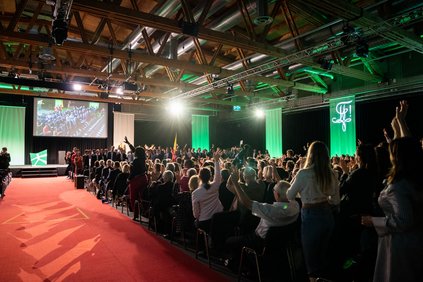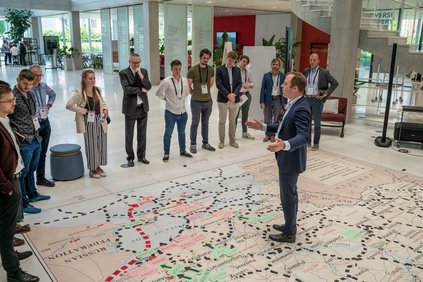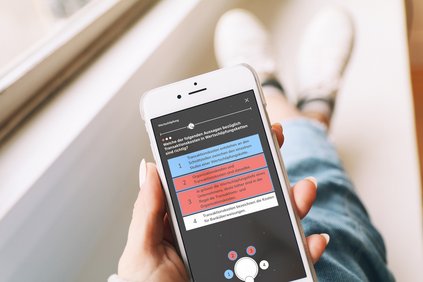Campus - 02.09.2022 - 16:42
HSG students become mentors for St.Gallen pupils
In a new course, HSG students spend some time with primary school children on a weekly basis. The children are supported in a wide variety of ways, and the students develop competencies which are also important in professional life.
“Students working with children for a year within the framework of a seminar is a completely new approach to ‘service learning’ at the HSG,” says HSG lecturer Michael Peters. The basic idea of service learning is doing something for other people in the context of academic teaching and learning. Peters is a coach and on the staff of the HSG’s coaching programme. He runs the new course entitled “DreamTeam: mentoring programme for the next generation” together with the psychotherapist and organisation psychologist Florian Schulz. In this course, HSG undergraduates spend some of their spare time every week with St.Gallen primary school children. This may involve visits to a museum, theatre or zoo, but also going for a walk, doing sports, playing, doing handicraft work and cooking.
Personality development for children and students
Both parties profit from this, as Peters says: “Many of the children come from families that are confronted with many challenges. The attention paid to them by the students and the playful way in which they deal with them fosters the children’s positive development in a sustainable manner. But the students also develop social and specialist competencies through these encounters.” These competencies include understanding and empathy, self-reflective action, dealing with limits, a development-oriented way of building relationships, conducting conversations in a positive way and a more profound understanding of different life-worlds. “Dealing with children mirrors challenges which students will later encounter in the world of work as well. This includes assuming responsibility, listening to people, encouraging them and finding constructive solutions to conflict situations,” says Peters.
The course is part of the HSG’s contextual studies, which is compulsory for all the students. At undergraduate level, it accounts for about a sixth of all the courses and focuses on social, historical and cultural competencies (“skills”).
New impulses for teaching and research at the HSG
The HSG is implementing the DreamTeam programme in cooperation with EDUCA SWISS, a foundation for the promotion and funding of education. DreamTeam provides “new impulses in teaching and research” in the universities involved, writes EDUCA SWISS. Besides the course at the HSG, the Eastern Switzerland University of Applied Sciences (OST) is running a course along the same lines, with each educational institution setting its own subject foci.
During the one-year course, HSG students deal with the issue of social entrepreneurship, for example. “Also, they receive pedagogic training in an intensive block course at the beginning of the course and are introduced to child development psychology,” says HSG lecturer Peters.
Contribution towards educational justice
By attending the course, HSG students also make a contribution to educational justice. Social backgrounds have a strong influence on what kind of education young people receive in Switzerland. According to the Federal Statistical Office (FSO), 55.6 per cent of students at Swiss universities have at least one parent with a university degree. The proportion of people with at least one highly educated parent is thus substantially higher than among the permanent resident population.
Therefore, HSG students spend time with children who have language problems, for instance, or whose parents have scarce resources in the way of leisure activities. According to EDUCA SWISS, DreamTeam enhances childrens’ social competencies, improves their performance at school and practises how to deal with conflict situations. Peters, a professional coach, and the HSG psychologist Schulz will support students and provide them with regular specialist impulses and intervision meetings, in which students will reflect on their experiences with the children and discuss the challenges together. Each semester will be concluded with a party at which all the students, the school children and their families meet. It is clear for Peters that “the course will also be an exciting experiment for us faculty members.”
More articles from the same category
This could also be of interest to you
Discover our special topics
















